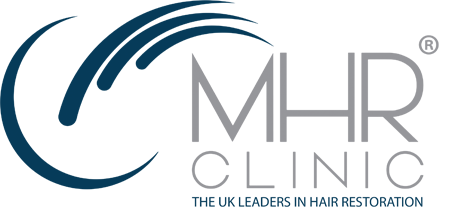
MHR Clinic consultants are asked about caffeine shampoo frequently. ‘Does caffeine shampoo help hair grow?’ and ‘What does caffeine shampoo do?’ are the most common questions. Here Dean Watson explains why caffeine shampoo doesn’t prevent hair loss but may help hair grow.
Caffeine is commonly used to wake up in the morning, release some energy in the afternoon and keep tired eyes open at night.
It’s the socially acceptable, broadly encouraged chemical that many of us factor into our daily lives to keep us thriving, through a cup of coffee.
For others though, who buy caffeine in an infused shampoo, it is a beacon of hope for better hair growth and less hair loss.
Many clients who come to see us at MHR Clinic ask questions like, ‘what does caffeine shampoo do?’ and ‘does caffeine shampoo make your hair grow?’ or, more specifically, ‘does caffeine shampoo make hair grow faster?’
They’re reasonable questions to ask. Why wouldn’t a substance like caffeine add a little zip to tresses?
Manufacturers of caffeine shampoo design products to stimulate hair growth.
Their shampoos contain caffeine extract and they firmly believe caffeine boosts hair growth, and until not-so-long-ago one brand claimed it also stemmed hair loss.
But, with minimal viable scientific evidence of its effects on hair, and only elementary research undertaken, some caution (but not necessarily scepticism) is prudent when considering caffeine shampoo for hair loss and hair growth.
This is the balanced take on caffeine shampoos.



How does caffeine shampoo work?
The many brands of caffeine shampoo available make claims ranging from stimulating hair growth to elongating the hair shaft, suppressing the production of DHT (the hair loss hormone) and more modestly supporting hair health.
Needless to say, caffeine shampoo manufacturers suggest it offers several benefits for hair.
In 2014, scientists found that caffeine molecules were capable of penetrating hair follicles because they’re absorbed easily through the hair shaft and scalp.
Caffeine was detected in the blood of all controlled subjects who washed their hair with caffeine shampoo for just two minutes.
The scientists also showed that the presence of caffeine elongated hair shafts, creating longer, wider hair roots and swollen hair follicles.
Does caffeine shampoo help hair grow?
A scientific study in 2007 first indicated that washing hair with a shampoo containing caffeine might stimulate hair growth.
It claimed, “Caffeine alone led to a significant stimulation of hair follicle growth.”
In fact, caffeine had caused hair follicles to regrow hair on the laboratory petri dish. The findings of the research project weren’t ever progressed to be trialed on humans.
However, within three years, a German company Alpecin launched a caffeine shampoo, and added zinc and biotin for good measure.
It claimed it could make hair thicker and stronger, and improve hair growth. It also claimed to help reduce hair loss.
In 2018 the UK Advertising Standards Authority ruled that Alpecin could no longer claim to help reduce hair loss.
The study in 2014 did though show that a regular application of caffeine could make existing hair thicker.
Does caffeine shampoo stop hair loss?
The UK Advertising Standards Authority in 2018 prevented Alpecin, the foremost caffeine shampoo brand, from claiming it helped to reduce hair loss.
This was done because there is no clinical evidence in existence that proves caffeine shampoo is a viable treatment for male pattern baldness.
Caffeine shampoo does not stop hair loss.
Caffeine shampoo has not been proven to negate the effects of DHT on follicles in the long term.
Caffeine shampoo is roundly rejected by the medical community as a treatment for male pattern baldness.
The topical application of caffeine may thicken existing hair and support hair growth.
How to use caffeine for hair growth?
If incorporating caffeine shampoo into a hair care routine, wash in and rinse out within two minutes.
The active ingredient is absorbed into the scalp and hair. It moves through the hair shaft to the hair follicle.
There is a small risk of transient minor scalp irritation, which is addressed by rinsing hair thoroughly and discontinuing use of the caffeine shampoo.
Caffeine-containing shampoos may be used as a supportive treatment to proven medical hair restoration treatments such as low level laser therapy, minoxidil lotion, azelaic acid and finasteride.
At MHR Clinic, that choice is at the client’s discretion.
If you want to understand more about how to treat hair loss, please talk to MHR Clinic’s experts about the options available to you. Telephone 01565 745 344 or reach us through this contact page.
